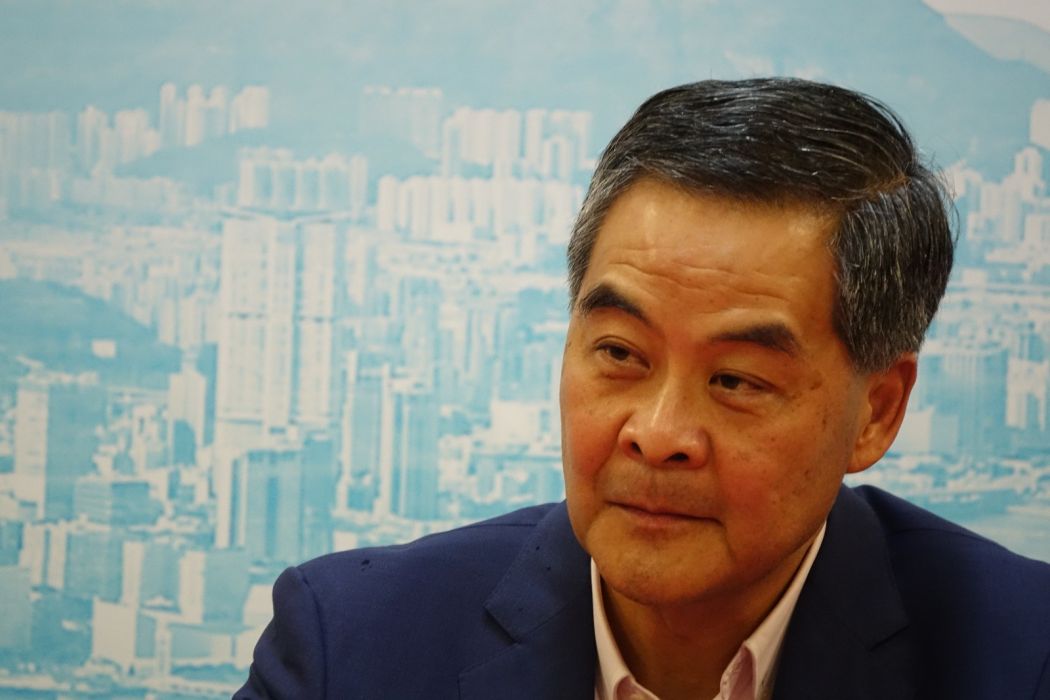Former Hong Kong chief executive Leung Chun-ying has expressed disapproval of the government’s plan to remove a reference to “political neutrality” from the code of conduct for civil servants. Leung, however, has said that all government employees must be patriotic.

The ex-leader said the requirement for civil servants to be politically neutral was “very clear” and should not be changed in a Facebook post on Tuesday.
“Abandoning [the expression]… would only give ammunition to people who oppose us,” he said.
Leung added, however, that “politically neutral” civil servants must be patriotic.
“Just like politically appointed officials,” he said, referring to those at the highest branches of government in Hong Kong, “‘politically neutral’ civil servants must be patriotic and be loyal… to the country.”
Leung also offered his own definition of political neutrality for government workers. “It means that civil servants cannot reject a task from supervisors based on their political beliefs, or only comply in appearance… it’s that simple,” he said.
The former chief executive’s comments came after authorities announced last week that the term “political neutrality” would be dropped from the civil servants’ code of conduct.
Addressing lawmakers at the Legislative Council last Tuesday, Secretary for the Civil Service Ingrid Yeung said the government would be updating the code of conduct for civil servants.
“Events in recent years and the international situation today shows the importance of patriots administering Hong Kong… therefore, the civil servants’ code of conduct should be updated to reflect the core values that civil servants should have,” she said.
“In the new code, we will no longer use [the term ‘political neutrality’],” Yeung added. “We will explain clearly that civil servants should not be biased or affected by their political orientations.”

The civil servants’ code of conduct was implemented in 2009. The code states that civil servants are “required to uphold” six core values, among them political neutrality; commitment to the rule of law; and dedication, professionalism and diligence.
‘Reward and punishment’
Yeung’s address at the Legislative Council was her first to lawmakers since Chief Executive John Lee presented his first Policy Address as Hong Kong’s leader last month.
She reiterated some of the points Lee outlined, including the introduction of new “reward and punishment” mechanisms. Starting the second half of next year, awards will be handed out every three to six months to “publicly praise… individuals and teams’ model behaviour,” she said.

“On the other hand, we must also have appropriate punishments… we will strengthen the management of civil servants whose work performance is not satisfactory,” Yeung said, adding that they would be let go if their performance did not improve.
Hong Kong employs around 175,000 civil servants working across government departments. The city has recently seen an uptick in resignations among civil servants, with the number of people leaving their posts doubling from the previous year.
Support HKFP | Policies & Ethics | Error/typo? | Contact Us | Newsletter | Transparency & Annual Report | Apps
Help safeguard press freedom & keep HKFP free for all readers by supporting our team

LATEST FROM HKFP
HKFP has an impartial stance, transparent funding, and balanced coverage guided by an Ethics Code and Corrections Policy.
Support press freedom & help us surpass 1,000 monthly Patrons: 100% independent, governed by an ethics code & not-for-profit.










